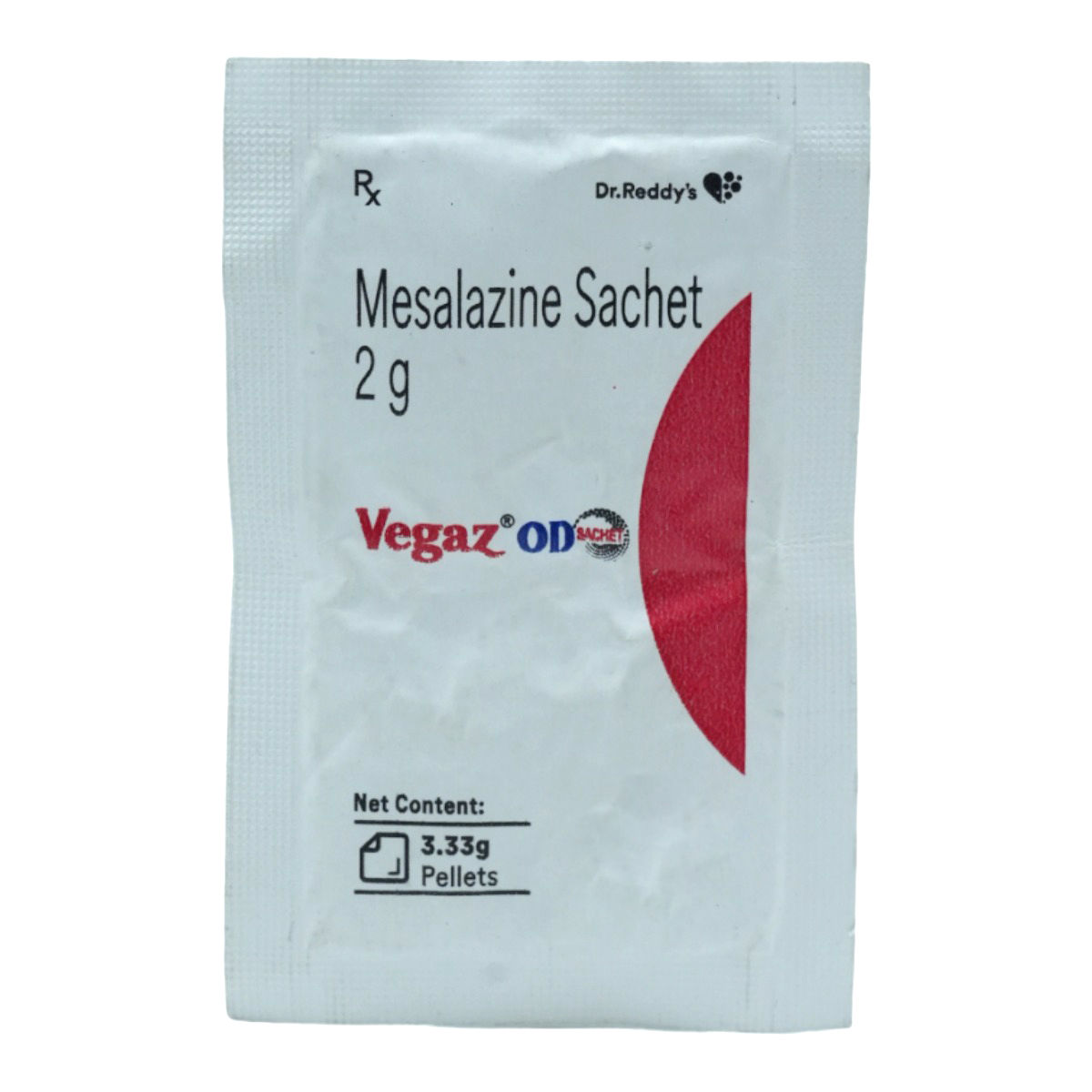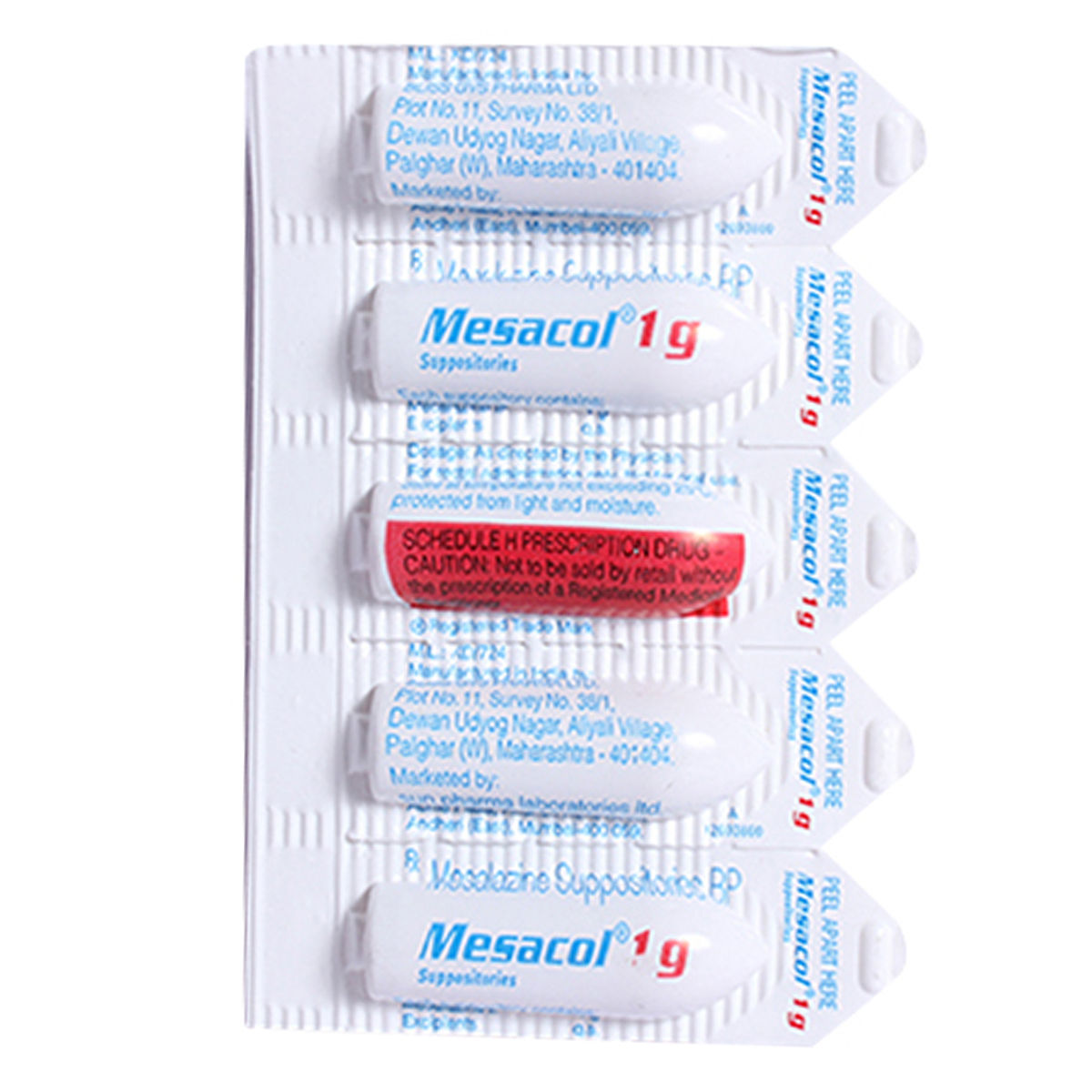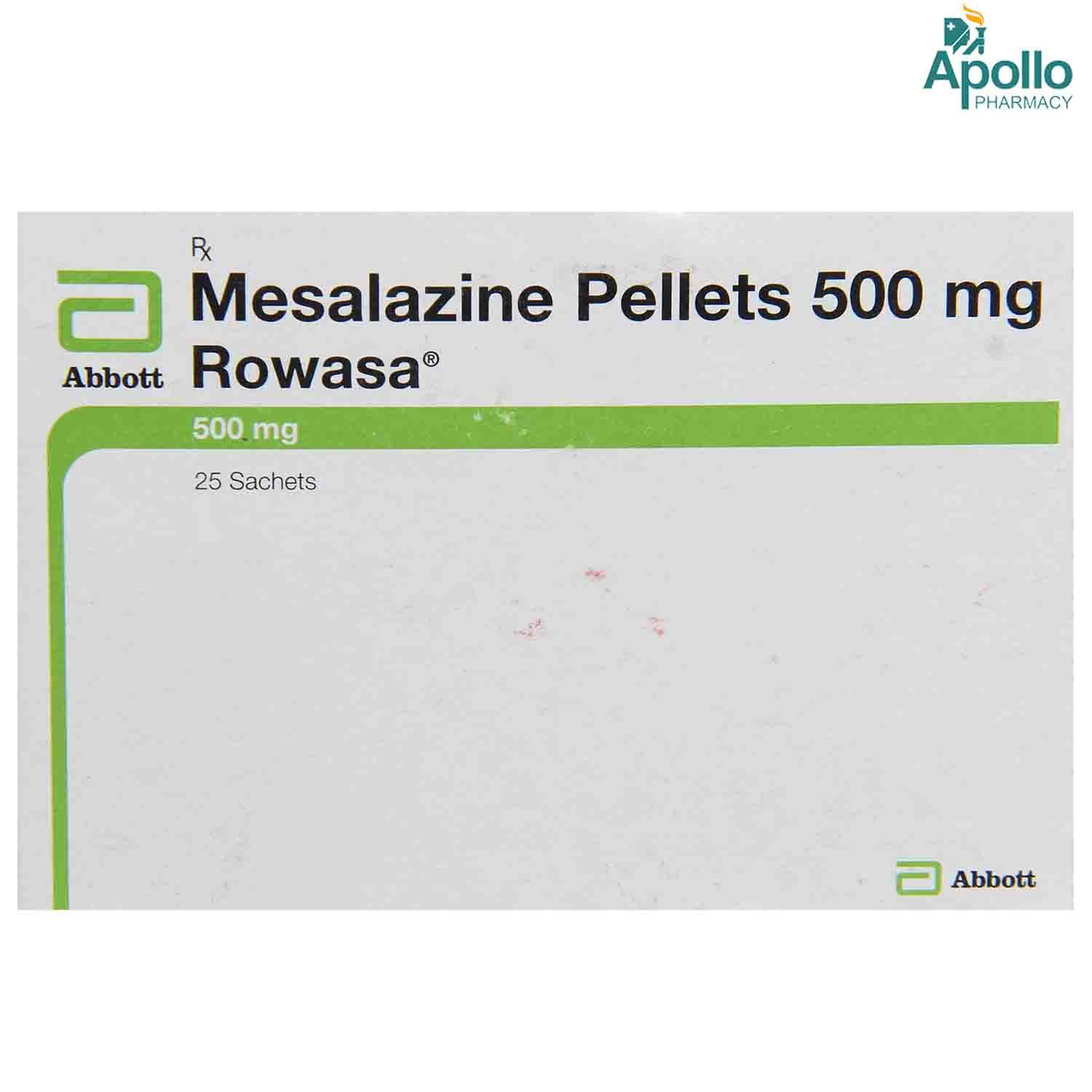Mesalazine
About Mesalazine
Mesalazine belongs to a class of anti-inflammatory drugs used to treat ulcerative colitis. Ulcerative colitis is a chronic inflammatory bowel disease that causes inflammation of the large intestine lining (colon). It produces ulcers on the colon's lining, which may cause bleeding and discharge of pus and mucus. Ulcerative proctitis is a condition in which ulcerative colitis solely affects the rear channel (rectum). Mesalazine used for the treatment of ulcerative proctitis and is exclusively designed for rectal usage.
Mesalazine contains Mesalazine, which works by inhibiting the production of certain chemical substances, such as prostaglandins, that cause pain and swelling.
Use Mesalazine as directed by your physician. Sometimes, you may experience diarrhoea, stomach pain, headache or nausea. Most of these side effects of Mesalazine do not require medical attention and gradually resolve over time. However, if the side effects persist or worsen, please consult your doctor.
Inform your doctor if you are allergic to Mesalazine, aspirin, or other medicines. Mesalazine should be used with caution in the elderly. If pregnant or breastfeeding, please inform your doctor before using the Mesalazine. Avoid taking Mesalazine if you have severe kidney failure. Avoid taking Mesalazine if you have blood abnormalities or kidney problems caused by other medicines such as Sulphasalazine.
Uses of Mesalazine
Medicinal Benefits
Mesalazine contains Mesalazine, an anti-inflammatory drug used to treat ulcerative colitis, ulcerative proctitis and Crohn’s disease. It works by inhibiting the production of certain chemical substances, such as prostaglandins, that cause pain and swelling. Thereby helping reduce inflammation (redness and swelling) in the intestines and providing relief from symptoms such as stomach pain or bleeding. Also, Mesalazine may prevent further episodes of ulcerative colitis. It is especially useful when ulcerative colitis symptoms affect the rectum.
Directions for Use
Storage
Side Effects of Mesalazine
- Diarrhoea
- Stomach pain
- Headache
- Nausea
Drug Warnings
Please tell your doctor if you are allergic to Mesalazine, aspirin, or sulfasalazine. Mesalazine should be used with caution in the elderly. If you are pregnant or breastfeeding, please inform your doctor before using the Mesalazine. Avoid taking Mesalazine if you have severe kidney failure. Avoid taking Mesalazine if you have had blood abnormalities or kidney problems while taking other medicines such as Sulphasalazine. Use Mesalazine in dose and duration as advised by a doctor only. Do not swallow Mesalazine. In case of accidental swallowing, drink plenty of water and consult a doctor immediately.
Drug Interactions
Drug-Drug Interactions: Inform your doctor if you are taking non-steroidal anti-inflammatory drugs (aspirin, ibuprofen), immunosuppressants (azathioprine) or other medicines.
Drug-Food Interactions: No interactions found.
Drug-Disease Interactions: If you have kidney impairment, please inform your doctor before using the Mesalazine.
Drug-Drug Interactions Checker List:
Safety Advice

Alcohol
cautionThe interaction of alcohol with Mesalazine is unknown. However, avoid consuming alcohol while on treatment with this medicine.

Pregnancy
consult your doctorMesalazine should not be used in pregnancy unless necessary. So, inform your doctor if you are pregnant or suspect pregnancy. Your doctor will weigh the benefits and potential risks before prescribing Mesalazine.

Breast Feeding
consult your doctorMesalazine should not be used while breastfeeding unless necessary. So, inform your doctor if you are a nursing mother. Your doctor will weigh the benefits and potential risks before prescribing Mesalazine.

Driving
safeMesalazine usually does not affect your ability to drive or operate machinery.

Liver
consult your doctorLimited information is available on the use of Mesalazine in patients with liver disease. Inform your doctor before receiving the Mesalazine if you have a history of liver diseases/conditions. If necessary, your doctor may prescribe a suitable alternative based on your condition.

Kidney
cautionInform your doctor before receiving the Mesalazine if you have a history of Kidney diseases/conditions. Mesalazine should be used with extreme caution in patients with mild to moderate kidney impairment. It is recommended for use in patients with severe kidney impairment.

Children
cautionMesalazine is for adult use only and is not recommended for children.
Habit Forming
Diet & Lifestyle Advise
Maintain a low-fat diet and eat foods rich in vitamin C, such as bell peppers, spinach, parsley and berries, which help in healing faster.
Opt for food and drinks high in Omega 3 fatty acids to get relief from pain, swelling, and inflammation. Omega 3 fatty acid-enriched foods include flaxseeds, walnut, soybean oil, salmon, and tuna if you prefer non-veg.
Eat more fibre-rich foods such as fruits and vegetables.
Eat smaller meals all day.
Drink small amounts of water throughout the day.
If you are intolerant to lactose, lower your intake of milk.
Avoid intake of foods high in sugar and fat and processed foods, as these may cause inflammation.
Try to avoid alcohol as it can affect your stomach and intestine and also limits the absorption of the important nutrients required by your body.
Patients Concern
Disease/Condition Glossary
Ulcerative colitis: It is a type of chronic inflammatory bowel disease that causes inflammation of the lining of the large intestine (colon) and produces ulcers on the lining of the colon, which may cause bleeding and discharge of pus and mucus. The common symptoms include bloody stools, stomach pain, rectal pain, diarrhoea, fever or weight loss. Additionally, it may cause other problems such as joint pain or swelling, mouth sores, skin problems, decreased appetite or nausea. The factors involved in causing ulcerative colitis include immune disorders and environmental factors like viruses, bacteria or antigens, which may trigger the immune system and genes inherited from the parent.
Ulcerative proctitis: It is a condition in which ulcerative colitis solely affects the rear channel (rectum).
FAQs
Mesalazine is used to treat ulcerative colitis, a chronic inflammatory bowel disease that causes inflammation of the large intestine lining (colon).
Mesalazine contains Mesalazine, which works by inhibiting the production of certain chemical substances, such as prostaglandins, that cause pain and swelling. Thus, it helps reduce inflammation (swelling) in the intestines and relieves symptoms such as stomach pain or bleeding.
Mesalazine may cause diarrhoea as a common side effect. However, if the condition persists or worsens with fever, watery stools or consistent stomach pain, please consult a doctor. Also, drink plenty of water while using Mesalazine to prevent dehydration.
You are not recommended to take Mesalazine with aspirin as co-administration of these two medicines may increase the risk of kidney problems. However, please consult your doctor before taking Mesalazine with other medicines.
No, you are not recommended to stop using Mesalazine suddenly as it may cause recurring symptoms. Therefore, use Mesalazine for as long as your doctor has prescribed it and if you experience any difficulty while using Mesalazine, please consult your doctor.









